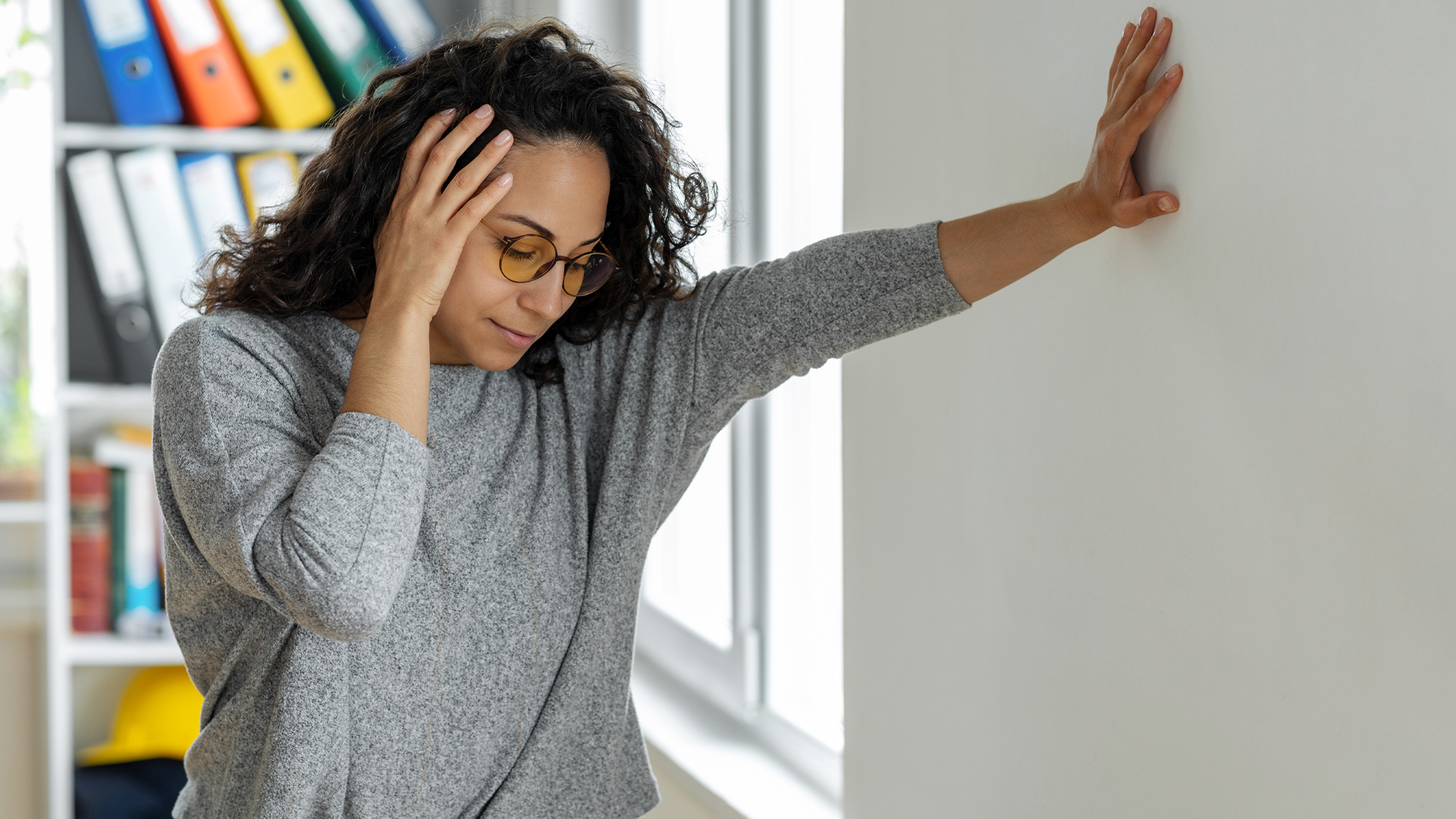Why do you get dizzy if you stand up too fast?
It's normal for you to occasionally get dizzy and for your vision to go dark when you stand up, but it can sometimes be a sign of a chronic health condition.

Get the world’s most fascinating discoveries delivered straight to your inbox.
You are now subscribed
Your newsletter sign-up was successful
Want to add more newsletters?

Delivered Daily
Daily Newsletter
Sign up for the latest discoveries, groundbreaking research and fascinating breakthroughs that impact you and the wider world direct to your inbox.

Once a week
Life's Little Mysteries
Feed your curiosity with an exclusive mystery every week, solved with science and delivered direct to your inbox before it's seen anywhere else.

Once a week
How It Works
Sign up to our free science & technology newsletter for your weekly fix of fascinating articles, quick quizzes, amazing images, and more

Delivered daily
Space.com Newsletter
Breaking space news, the latest updates on rocket launches, skywatching events and more!

Once a month
Watch This Space
Sign up to our monthly entertainment newsletter to keep up with all our coverage of the latest sci-fi and space movies, tv shows, games and books.

Once a week
Night Sky This Week
Discover this week's must-see night sky events, moon phases, and stunning astrophotos. Sign up for our skywatching newsletter and explore the universe with us!
Join the club
Get full access to premium articles, exclusive features and a growing list of member rewards.
You stand up quickly from the couch, and for a few seconds, you struggle to see and maintain your balance as your surroundings suddenly plunge into darkness.
This common-yet-unnerving experience raises a question: Why do you sometimes get dizzy when you stand up, and why can your vision go dark?
It turns out that this reaction — known as postural or orthostatic hypotension — is caused by a rapid change in body positioning, and it's usually nothing to worry about. But if it happens frequently or lasts a long time when it occurs, that could be a sign of a chronic health condition, an expert told Live Science.
Visual changes, lightheadedness and dizziness that occur in the seconds after you stand up happen due to a sudden, temporary drop in blood pressure, Dr. Stephen Juraschek, an associate professor of medicine at Beth Israel Deaconess Medical Center of Harvard Medical School, told Live Science by email.
Related: What is normal blood pressure?
For a moment, the brain is not supplied with enough blood and oxygen, he said. And the oxygen supply for the light-sensing tissue of the retina also falls. Since the retina requires a lot of oxygen to function properly, even a small dip in its supply can lead to vision problems.
The process of maintaining stable blood pressure after standing up is controlled by the autonomic nervous system, a set of nerves that regulates involuntary bodily functions, such as heart rate, breathing and digestion, Juraschek said. "When people stand up, about 300-800cc [cubic centimeters] of blood gets pulled in the legs, leading to a temporary drop in blood pressure," he said; that's about 0.3 to 0.8 quarts of blood suddenly flowing into the legs.
Get the world’s most fascinating discoveries delivered straight to your inbox.
This drop in blood pressure is detected by pressure-sensitive receptors in the arteries that supply blood to the brain and in the right atrium of the heart, which blood flows into after delivering oxygen to the body. These activated receptors then trigger a body-wide response that stabilizes the person's blood pressure — blood vessels constrict, the muscles of the legs and abdomen contract and heart rate increases, Juraschek said.
This does not usually cause noticeable effects. But in people who are dehydrated or experiencing an illness, like the flu, the drop in blood pressure may be more dramatic and might take longer to stabilize, Juraschek explained. People can also be prone to this dizziness if they take medications to reduce blood pressure, such as beta-blockers, he said.
Related: How much blood is in the human body?
And some people can be prone to the symptoms when getting out of bed in the morning, since their blood pressure is typically low at that time, and also when they're drinking alcohol or sweating a lot, according to Houston Methodist.
These short bouts of dizziness differ from chronic orthostatic hypotension, in which some individuals experience long-lasting or frequent loss of vision and balance after standing. This condition can interfere with their daily lives and cause falls, fainting and car accidents, and it's a risk factor for cardiovascular problems and kidney disease, Juraschek said.
"Postural hypotension may be particularly concerning if it persists beyond 3 minutes of standing," he noted.
Depending on what causes the condition, orthostatic hypotension can be either primary or secondary, according to the National Institute of Neurological Disorders and Stroke. Primary orthostatic hypotension is rare and caused by impairments to the autonomic nervous system, such as those caused by nerve damage.
Secondary postural hypotension, in which symptoms are caused by other medical conditions, is more common. This can be related to low heart rate (bradycardia), low blood sugar (hypoglycemia) and thyroid conditions, for instance, the Mayo Clinic states. Aging can also leave the pressure sensors in the neck and heart less reactive and the heart less able to quickly adjust its speed, leaving people ages 65 and older more prone to these dizzy spells.
This article is for informational purposes only and is not meant to offer medical advice.

Anna Gora is a health writer at Live Science, having previously worked across Coach, Fit&Well, T3, TechRadar and Tom's Guide. She is a certified personal trainer, nutritionist and health coach with nearly 10 years of professional experience. Anna holds a Bachelor's degree in Nutrition from the Warsaw University of Life Sciences, a Master’s degree in Nutrition, Physical Activity & Public Health from the University of Bristol, as well as various health coaching certificates. She is passionate about empowering people to live a healthy lifestyle and promoting the benefits of a plant-based diet.
 Live Science Plus
Live Science Plus










